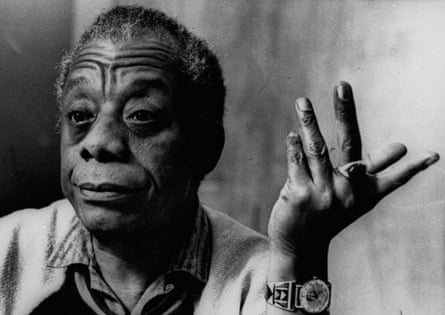[ad_1]
Fox News has finally broken ties with its most popular star, Tucker Carlson. His ousting has been bemoaned by some commentators, who have taken Carlson to be a rebellious anti-war populist, evading easy political characterization. But is it really so complicated to classify Carlson’s political ideology?
In late February 2022, then Fox News anchor Tucker Carlson, in the face of Russia’s invasion of Ukraine, began a pro-Russia monologue urging his audience to ask themselves the question: “Why do I hate Putin so much?” The gist of Carlson’s comments about Russia’s leader is that Putin should not be regarded as an enemy. Instead, the real enemies of America are those who call white Americans racist, those who teach so-called critical race theory in schools, business elites who ship jobs abroad, and those who imposed Covid lockdowns on the United States.
In short, Carlson urged, the real enemies of America are internal – racial minorities, doctors and politicians, professors and educators, and large corporations who shift jobs to other countries. Carlson has been resolutely against US support for Ukraine. Insofar as Carlson has since that point gone to war, it has rather been against these supposed internal enemies.
So, is Tucker Carlson hard to classify? On the one hand, he spreads tropes central to neo-Nazi propaganda, such as “white replacement” theory, suggesting that leftist elites seek to replace “legacy Americans” by foreign non-white immigrants. On the other hand, he denounces media, intellectual and political elites, as well as US intervention in Ukraine, platforming those who identify as the “anti-war left”, such as Jimmy Dore. How should we best understand this set of views? If Carlson has fascist sympathies, as do, quite inarguably, many of those who applaud him, how do we understand his firm stance against US military and financial support for Ukraine? Surely, historically speaking, fascism is not compatible with the isolationist position Carlson has urged.
We should look to history as our guide here. But the history that best informs us in this case is not European history, but American history. Before the beginning of the second world war, all of America’s pro-fascist parties opposed US intervention on the side of its allies against Nazi Germany. Often, the opposition to the US supporting Britain against Nazi Germany was represented as “isolationism”.
There were openly fascist organizations during this time, such as the German American Bund. Somewhat more ambiguous was the America First movement. As the historian Bradley Hart recounts, in a packed America First rally in Madison Square Garden in 1941, the Montana senator Burton K Wheeler denounced “jingoistic journalists and saber-rattling bankers” who were pushing the nation into war against Germany.
While the agenda of some members of the America First movement at the time might have genuinely been pacifist, it’s quite clear that the main agenda was in fact support for Hitler. The America First movement had strong support from American fascist movements of various stripes. Its most prominent spokesperson, Charles Lindbergh, published the following words in support of his anti-war position in an essay entitled “Geography, Aviation, and Race” in Reader’s Digest in 1939:
… It is time to turn from our quarrels and to build our White ramparts again. This alliance with foreign races means nothing but death to us. It is our turn to guard our heritage from Mongol and Persian and Moor, before we become engulfed in a limitless foreign sea. Our civilization depends on a united strength among ourselves; on strength too great for foreign enemies to challenge; on a Western Wall of race and arms which can hold back either a Genghis Khan or the infiltration of inferior blood; on an English fleet, a German air force, a French army, an American nation, standing together as guardians of our common heritage, sharing strength, dividing influence.
It is simply inarguable fact that American racial fascism has a clear isolationist tradition, especially when the wars in question are against fascist opponents.
But is Putin’s Russia fascist? In Russia, opposition politicians and journalists are regularly imprisoned or murdered. Russia has passed harsh laws against LGBTQ+ communities. Russia’s ideology is based on a militarized Russian nationalism, and its war against Ukraine is quite clearly genocidal in nature. Just as Nazi Germany represented itself as the defender of Christianity and Europe’s classic traditions against an existential threat posed by leftist atheist Jews, Putin represents Russia as the sole defender of the European Christian traditions against similar existential threats, such as “gender ideology”.
Putin’s Russia is the international leader of the global far right, promoting ultra-nationalism, religious traditionalism and anti-LGBTQ+ sentiment across the world. If Russia is not fascist, then even Nazi Germany in the 1930s was not fascist. As the historian Timothy Snyder has urged, “we should finally say it”: Russia is fascist.
Just as claims to be isolationists by American inter-war fascists were quite rightly taken to be expressions of support for Nazi ideology, there is good reason to take Carlson’s similar claims not as denunciations of American militarism but as expressions of support for Putinism, which he seems largely to share.
What about Carlson’s scorn for the media, intellectual, financial and political elite, which he lacerates with regularity on his show? Here too there is little ambiguity. Carlson does not scorn all elites – after all, he himself was making as much as $20m a year from Fox news. He only targets certain elites. In the ideology of American fascism, the elites he targets are associated with liberal democracy and Jewish control.
American fascists have always denounced the media, intellectuals and politicians. Carlson is careful to avoid explicitly antisemitic statements. But his show is the home of anti-Soros conspiracy theories. The antisemitism in his programming is clearly dog-whistled, and Jewish organizations have been among the first to cheer his ousting. Indeed, if Carlson did not regularly denounce media, intellectual, financial and political elites, regular targets of Nazi ideology, the case for calling him an American fascist would be much less clear.
Nazi ideology supported strict gender roles – one of the central targets of the first mass Nazi book burning on 10 May 1933 was Magnus Hirschfeld’s collection of LGBTQ+ literature, the largest in the world and the largest documentation of gender fluidity (Hirschfeld coined the term “transsexual”). Carlson has used his platform to denounce transgender Americans as existential threats to Christianity. Fascists target cosmopolitan ways as existential threats to masculinity – a viewpoint Carlson also clearly shares.
Finally, fascism praises violence against democracy, valorizing violent street mobs attacking democratic processes and institutions as martyrs to the nation. Here too Tucker Carlson fits perfectly into the tradition.
It is not difficult at all to classify Tucker Carlson’s political ideology. He is an American fascist, only the latest in a long historical line.
[ad_2]
#Tucker #Carlson #antiwar #populist #rebel #fascist #Jason #Stanley
( With inputs from : www.theguardian.com )




